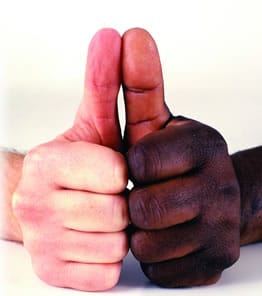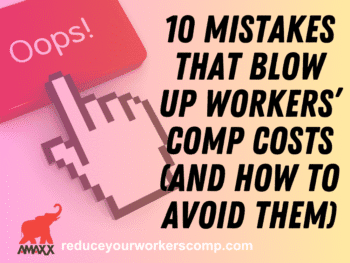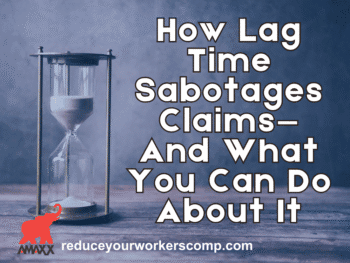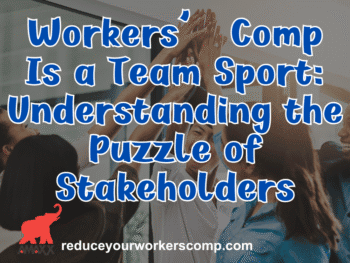In the new Global Report on Equality at Work 2011, the International Labor Office (ILO) is stating that in spite of continuous positive advances inanti-discrimination legislation, the global economic and social crisis has led to a higher risk of discrimination against some groups like migrant labour.
“Economically adverse times are a breeding ground for discrimination at work and in society more broadly. We see this with the rise of populist solutions,” said ILO Director-General Juan Somavia, adding, “this threatens painstaking achievements of several decades.” (WCxKit)
The report entitled Equality at Work: The Continuing Challenge, cites equality bodies which receive increased numbers of complaints, showing that workplace discrimination has become more varied, and discrimination on multiple grounds is becoming the rule rather than the exception.
It also warns against a tendency during economic downturns to give lower priority to anti-discrimination policies and workers’ rights in practice. “Austerity measures and cutbacks in the budget of labor administrations and inspection services, and in funds available to specialized bodies dealing with non-discrimination and equality, can seriously compromise the ability of existing institutions to prevent the economic crisis from generating more discrimination and more inequalities,” the report says.
According to the report, the lack of reliable data in this context makes it difficult to assess the exact impact of these measures. It therefore calls on governments to put into place human, technical, and financial resources to improve data collection on discrimination at the national level.
The report also notes that new forms of discrimination at work arise while the old challenges remain at best only partially answered.
Among the key findings of the report:
1. Significant progress has been made in recent decades in advancing gender equality in the world of work. However, the gender pay gap still exists, with women’s wages being on average 70 to 90 percent of men’s. While flexible arrangements of working schedules are gradually being introduced as an element of more family-friendly policies, discrimination related to pregnancy and maternity is still common.
2. Sexual harassment is a significant problem in workplaces. Young, financially dependent, single, or divorced women and migrants are most vulnerable, while men who experience harassment tend to be young, gay, or members of ethnic or racial minorities.
3. Combating racism is as relevant today as it ever was. Barriers impeding equal access to the labour market still need to be dismantled, particularly for people of African and Asian descent, indigenous peoples and ethnic minorities, and above all women in these groups.
4. Migrant workers face widespread discrimination in access to employment, and many encounter discrimination when employed, including access to social insurance programs.
5. Rising numbers of women and men experience discrimination on religious grounds, while discrimination based on political opinion tends to take place in the public sector, where loyalty to the policies of authorities in power can be a factor in access to employment.
6. Work-related discrimination continues to exist for many of the world’s 650 million persons with disabilities as their low employment rate reveals.
7. Persons with HIV/AIDS can suffer discrimination through mandatory testing policies, or testing under conditions, which are not genuinely voluntary or confidential.
8. In the European Union, 64 per cent of those surveyed expected that the economic crisis would lead to more age discrimination in the labour market.
9. In a limited number of industrialized countries, discrimination based on lifestyle has emerged as a topical issue, especially in relation to smoking and obesity. (WCxKit)
The Global Report recommends four priority steps to combat discrimination including the promotion of the universal ratification and application of the two fundamental ILO Conventions on equality and non-discrimination; the development and sharing of knowledge on the elimination of discrimination in employment and occupation; development of the institutional capacity of ILO constituents to more effectively implement the fundamental right of non-discrimination at work; and strengthening of international partnerships with major actors on equality.
1. Equality at Work: The Continuing Challenge, Global Report under the follow-up to the ILO Declaration on Fundamental Principles and Rights at Work, International Labour Conference, 100th Session 2011, International Labour Office, Geneva.
Author Rebecca Shafer, JD, President of Amaxx Risks Solutions, Inc. is a national expert in the field of workers compensation. She is a writer, speaker, and website publisher. Her expertise is working with employers to reduce workers compensation costs, and her clients include airlines, healthcare, printing/publishing, pharmaceuticals, retail, hospitality, and manufacturing. See www.LowerWC.com for more information. Contact:RShafer@ReduceYourWorkersComp.com.
Our WC Manual: http://corner.advisen.com/partners_wctoolkit_book.html
WORK COMP CALCULATOR: http://www.LowerWC.com/calculator.php
SUBSCRIBE: Workers Comp Resource Center Newsletter
Do not use this information without independent verification. All state laws vary. You should consult with your insurance broker or agent about workers comp issues.
©2011 Amaxx Risk Solutions, Inc. All rights reserved under International Copyright Law. If you would like permission to reprint this material, contact Info@ReduceYourWorkersComp.com.

























